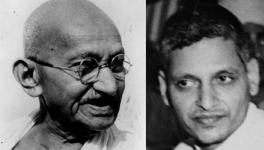Chhapaak: A Critical Dialogue on a Complex Theme
Meghna Gulzar’s Chhapaak is a rare example of a cinematic narrative that does not convey a fixed meaning on a range of complex socio-legal questions of patriarchal violence, criminal justice and rehabilitation. As against scores of other movies on socio-legal themes, such as Nikhil Advani’s Batla House and Ajay Bahl’s Section 375, this movie engages the audience in a critical dialogue that these complex themes deserve.
If you have ever felt excruciating physical pain in your life, then you are bound to relate to the piercing cries of Malti, played by Deepika Padukone, who also co-produces the film with Gulzar. Towards the climax, just when you are beginning to relax your shoulders, the movie shakes you like a leaf, by portraying yet another gruesome acid-attack incident. This denial of catharsis is what gives Chhapaak its uneasy and poignant effect.
Chhapaak is a stellar depiction of a survivor’s journey from being turned into a victim to becoming a role model. The film is a shout-out to lawyers and the NGO support system to actually strengthen the remedial process by living up to their reason for existing.
The film explores the fault-lines between the survivor’s real-life struggle and their allies/advocates’ moral crusade. While the survivor is braving the odds in her family and the medical set-up, trying to find any hope of rebuilding her life after the traumatic episode, her advocates intend to ‘make an example’ of the punishment they want meted out to the culprits. This demonstrates the huge gap that exists in terms of the social and economic capability of the survivor. She—most victims of acid attacks are women—have to bear a disproportionate burden of pursuing the legal battle in the labyrinth of our criminal justice system.
In this way, the film critiques the challenges in accessing justice. It posits the lack of socio-medical support for the victim even as the Supreme Court-mandated victim compensation scheme flounders amidst serious challenges in implementation.
Wedding the nuance of desirable social messaging with the ease of storytelling, the movie demystifies the menace of acid attacks as the grave acts that lead to a sudden (chhapaak) erasure of identity. It brings to the fore the fact that these barbaric attacks are not peculiar acts of demonic criminals but rather a product of our social structures. The film also offers insights into the life of acid attack survivors with subtle and nuanced depictions of their everyday. It portrays them as vulnerable, after no matter how much time passes or how many successes they have clocked up, post the attack.
In one scene, set in a store, Malti reads out comments on one of their posts to another attack survivor. After a series of positive comments, a distasteful comment comes up and both of them steal glances at each other and they, evidently, collapse a little inside.
With exceptional sensitivity, Chhapaak shows how the institutional and systemic problems such as police apathy, the unregulated sale of acid and lack of public sensitisation are larger creations of a patriarchal social structure. It shows the root cause of these attacks by portraying the real-life story of a survivor. Laxmi’s story is a demonstration of how these attacks are pernicious attempts to subordinate women who seek to subvert patriarchal structures and ambitiously strive for freedom or social mobility.
It is also a stinging critique of the masculinist acquisitive instinct that escalate from voyeurism, harassment and ultimately manifests in the heinous act of throwing acid.
The film highlights the vulnerability of the young women who do not have empathetic families or support structures to bolster them during a crisis. When such women battle everyday misogyny, they confront a multitude of taboos and sexualised shaming from the wider society and from people close to them. While highlighting the perils of lack of comprehensive education on sexuality and socio-psychological support services, Chhapaak highlights how women suffer indignity just to go about their normal lives. It helps one confront the iniquitous ignominy that acid attack heaps on its victims—and demands radical societal transformation.
Gulzar is a non-conformist when it comes to making films. The only thing she stays true to while writing is the story and its impact. One cannot help appreciate the precision with which all the details have been taken care of in the film. Set in the year 2005 in Delhi, it has ensured that Malti’s clothes, the handbags she carries and her mobile phone all belong in era. The prosthetics also keep on changing, as they would in real life thanks to medical procedures, and that is why Malti’s character slowly grows on you.
Gulzar has cleverly leveraged the song, Chhapaak, in the most defining scenes of the film. Most of the intense drama is comes by the clever use of this song. It drives the viewer’s experience and makes the film’s impact lasting. Arijit, in the final analysis, was the most befitting voice for this track. The Meghna-Arijit magic goes back to Raazi (2018) whose rendition of Ae Watan by Arijit was worthy of goosebumps and a tear or two.
Chhapaak plays up the public outrage over the Kafkaesque criminal justice system and the archaic colonial laws, but fails to avoid the pitfalls of the populist criminalisation narrative. The argument for reasonably strict penalty notwithstanding, the film does venture into a discourse on criminalisation where there is predominance of public morality over rule of law that seeks to protect the accused’s rights.
Prannv Dhawan is a third-year law student at NLSIU, Bangalore. Bhavya Arora is a student of Hansraj College, Delhi University.
Get the latest reports & analysis with people's perspective on Protests, movements & deep analytical videos, discussions of the current affairs in your Telegram app. Subscribe to NewsClick's Telegram channel & get Real-Time updates on stories, as they get published on our website.
























